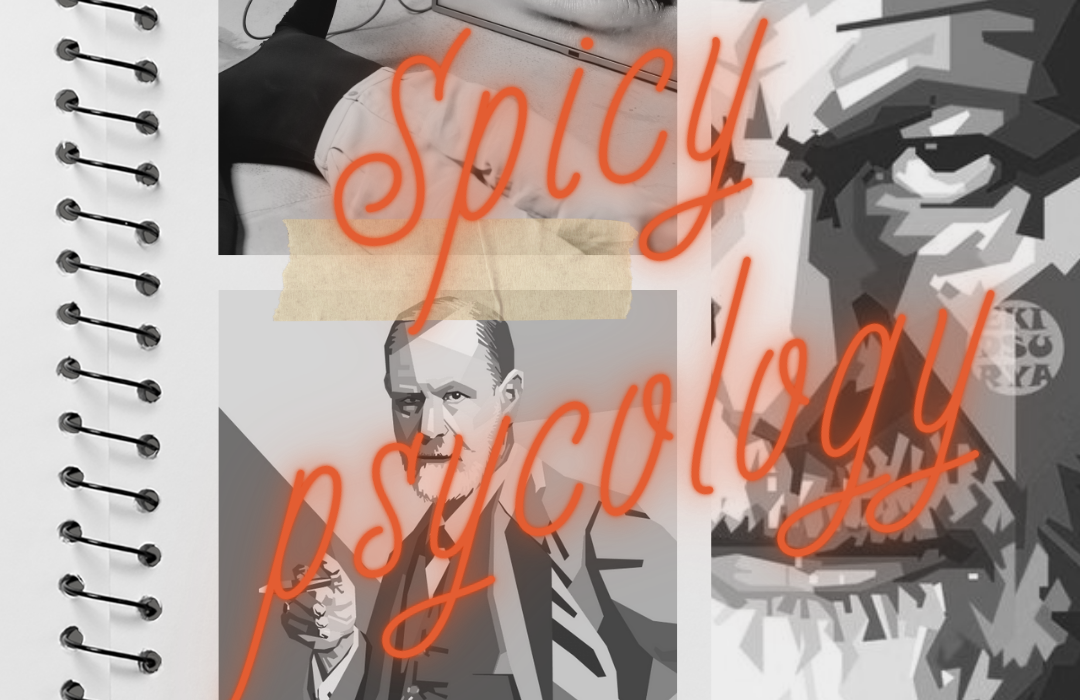Like clockwork, Netflix has dropped its annual banger, yet another cultural moment gripping the internet in an iron-clad grasp. What's becoming increasingly clear, though, is the consistent trend: these headline-grabbing shows tend to be male-centric and about their experiences. But that’s a conversation for some other time.
Hello, my dear reader. My name is Simoni (pronounced c-mo-knee), and I am a psychologist by profession and a feminist by religious preferences. Welcome to the very first edition of Simon(i) Says, where I take something trending and run it through the fine mesh of psychological theory, feminist thought, and a healthy dose of irreverent curiosity. The goal? To spot something shiny in the pile of digital chaos, the internet churns out every five milliseconds. In this edition, I want to talk about the popular show – Adolescence, but not in a way to dissect it, but in an attempt to answer the questions and problems it poses.
I binged the show in a single day and walked away with a series of lukewarm takes around it. First off, the cinematography offered a surprisingly visceral insight into how the world often looks through a man’s eyes: linear, rational, and inherently forgiving – even when murder is involved. Jamie, the protagonist(?), a 13-year-old cis-heterosexual boy, is handled with safety gloves from the beginning to the very end of the four-episode show. His boyish charm is not lost on anyone within the station where he is first detained, and even his psychologist, who brings him hot chocolate with sprinkles after his conviction. The treatment that men get, regardless of their age or social position, is what startled me the most out of the whole show because it felt like a rude awakening of how different it is usually for women, regardless of their social positionality.
The act of murder itself felt extreme for obvious reasons, but the psychological mechanisms that went behind the murder and how men are being raised lately did not startle me. In my narrative and the narratives of women around me, I have come to witness a similar, if not a replica, of the red pill rhetoric being perpetrated by men in our lives. I once had an ex who would constantly reinstate his beliefs on me about how I could never be conventionally beautiful, but for him, I was the most beautiful woman because he chose to love me. He also wrote a poem about how he would rather bury me alive, six feet under snow, if I were to stop being his girlfriend, because what other purpose could I serve if I weren’t dating him? Romantic? No. Manipulative and mildly life-threatening? Entirely.

What Adolescence does well, perhaps too well, is showcase the social conditioning of boys in a hyperconnected world where misogyny isn’t just alive but algorithmically optimized. The show might be fictional, but the themes are scarily real. The idea of bringing a woman down, to make her nothing more than an object to sexualize and use, is a tale as old as time. Even the idea of not taking rejection kindly isn’t something that only Gen-Z or TikTok bros struggle with. Your fathers, uncles, grandfathers, and more older men around have never been kind with rejection coming their way, especially from the women in their lives. In favorable scenarios, the rejection leads to various forms of violence on women but in extremely unfavorable ones, the woman’s fate like in this case a child’s fate is sealed just like Katie’s.
But let’s get contextual for a second. If I were to drag the manosphere’s rhetoric into a family dinner with the older generation, chances are, it would be met with nods of agreement. There is a very real possibility that they see it as facts. Case in point: almost every conversation around divorce and the rising divorce rates in the last decade inevitably place the blame on women and their newly found taste for independence and inability to take any subpar treatment from their husbands and in-laws. These conversations are deeply rooted in hypergamy which is mirrored in the show when the police officials are trying to understand the ‘why’ behind a seemingly innocent Jamie’s heinous crime.
Now, with some insight into where my thoughts are, let me bring you back to what I promised for this, not another op-ed about dissecting the show. This is going to be a shiny piece that looks into paving a path for resistance against the crimes that took place in the show - both overtly and covertly.
Exhibit A: Building the Floor for Feminist Allyship (Yes, Even for the Boys)
How do we and by "we", I mean mental health practitioners, social workers, and everyone else knee-deep in the business of human betterment, create a solid floor for unwavering feminist allyship across all genders? Especially the men?
When dissecting the manosphere, it is quite evident to see how it’s functioning as a cult with strong and problematic leaders like Andrew Tate being the flag bearers of hypermasculinity and misogyny. The thing about cults? They know exactly who to prey on. In this case, Tate and his cronies are easily able to prey on younger boys and men.
Upon careful examination, it is easy to see how the Red Pillers offer intense and unconditional support for younger men and boys to embrace the “truth” they have created. There is a sense of comfort and also the in-group feeling that can easily be used to seduce a more vulnerable group of people – in this situation younger boys and men. Boys like Jamie in Adolescence are textbook examples. Isolated, confused, and craving direction, they’re ripe for the picking. And red pill ideology? It doesn’t just recruit, it love bombs. It offers unconditional validation wrapped in the illusion of strength, turning misogyny into a bonding exercise. It’s comfort food for fragile egos: warm, addictive, and deeply unhealthy.
While there seem to be a gazillion of these Tate like germs spreading their disease, we are the ones who need to fight back. As a therapist, I often see my peers and even my own practice addressing this as an individual issue when it is a collective one. We need to actively name and unpack misogyny, toxic masculinity, and gendered violence in clinical spaces. Men in therapy should be encouraged not only to explore their wounds but also to interrogate their positions of power and how they may replicate harm. Another important point of entry can be the language used by men. Calling coercion “bad communication”? Framing control as “he just has trouble expressing himself”? That’s not a therapeutic nuance. That’s malpractice with a side of patriarchy. Language matters. And if we want to challenge oppressive systems, we have to start by naming them properly.
Now, for the hard part: true allyship demands discomfort. We need to stop giving men exit ramps the moment accountability gets awkward. Let’s build community spaces like therapy rooms, classrooms, town halls. Spaces where men are invited not just to show up and perform their feminism, but to mess up, stay in the room, sit in their mistakes, and learn how to repair. Growth doesn’t come from perfection, it comes from persistence.
This reminds me of a dear friend - we’ll call her B, a social worker, who runs gender-based violence awareness sessions in rural Nepali schools. When she started, most schools would only gather the girls for her sessions. You know, the classic "let’s teach the girls not to get hurt" logic. But B, in all her defiant brilliance, fought tooth and nail until the schools agreed to include the boys. Because prevention doesn’t work when you’re only preaching to the already-victimized.
It’s time we stop raising “good boys” and start raising aware boys. The “good boy” is just polite patriarchy, well-behaved, but untouched by the need for introspection. What if, instead of praising boys for being “strong” or “well-mannered,” we taught them to sit with discomfort, recognize their privilege, and question the default authority handed to them like a birthright?
That, my readers, is where resistance begins, not with finger-wagging, but with rewiring. Not with shame, but with radical accountability and compassionate confrontation.

Exhibit B: Parenting in the Age of Algorithms – Or Why Helicopter Surveillance is Not the Vibe
Let’s shift the lens now. If Exhibit A was about planting the seeds of feminist allyship in young boys, then Exhibit B is about tending the soil, aka the home, the family, and the smartphone screens that children are practically born with now.
One of the most bone-chilling aspects of Adolescence wasn’t just Jamie’s violent act, it was his eerily calm, dead-eyed belief that he had done nothing wrong. No remorse, no insight, just pure, straight-faced entitlement. Why? Because in his mind, it didn’t count as real harm if there was no sexual component. As if murder without sexual assault is some sort of moral loophole. As if rage, when algorithmically marinated in male privilege, is just... Tuesday.
But here’s the thing: Jamie didn’t download this behavior from the app store. He learned it. He watched it. He internalized it. And that brings us to an uncomfortable truth: kids absorb more than they're taught. Which sounds cute until you realize what they’re soaking up is dad slamming doors and mom walking on eggshells. Jamie had a teacher and that teacher looked a lot like his father being angry and his treatment towards his mother and sister which is seen in the very last episode. Suddenly, Jamie’s behavior doesn’t look so isolated. It looks inherited.
Here’s where most parents panic and respond with what I like to call the Big Brother Starter Pack: install tracking apps, set screen time limits, monitor browser history like it’s Area 51. But here’s the twist, total surveillance doesn’t lead to safer children. It leads to sneakier children. You don’t teach kids values by policing their Wi-Fi, you just teach them how to delete their search history like pros. Surveillance breeds secrecy, not safety. It replaces trust with paranoia. And it turns the internet into a forbidden forest instead of a place to learn, stumble, and grow with a guide, not a warden.
So, if banning TikTok isn’t the answer (spoiler: it’s not. Gen Alpha will just find the next thing before we’ve even figured out how to download the current one), then what is? Enter: Digital Literacy, but make it emotionally intelligent.
We need to teach kids how to scroll with skepticism. Think of it as sex-ed for the soul-sucking corners of the internet. The timeline is a textbook now, except this one has filters, followers, and fragile egos in the comments section. While we’re at it, let’s get parents a curriculum too. Not “how to install spyware on your child’s phone,” but “how to talk about the Andrew Tate;s of the internet without turning it into a shouting match.”
Instead of “WHAT ARE YOU WATCHING?” try: “What did you think of that?”
Then shut up. And listen. Really listen.
Let's face it: kids will encounter harmful content. The question is, will they have the critical muscles to interrogate it? Will they know the difference between empowerment and exploitation - between a community and a cult? Let’s go one step further. That’s our job, not just as therapists, but as parents, mentors, cool cousins, semi-woke uncles, and tired-but-trying teachers. We are the buffer zone. We are the firewall.
While Jamie may be fictional, the structures that created him are not. So next time your kid’s watching a podcast clip featuring a guy named “Alpha Warrior 9000” explaining why women don’t deserve rights before 9 AM, don’t lunge for the phone. Take a deep breath, unclench your soul, and start a conversation. Perhaps parenting in the age of algorithms isn’t about controlling what they see. It’s about helping them see through it.
Exhibit C: Understanding Anger, Instilling Accountability, and Learning Empathy (Yes, All at Once, Please)
The whole narrative felt like it was shot through a sepia-toned lens of forgiveness: gentle lighting, slow-motion flashbacks, the kind of framing usually reserved for misunderstood poets or golden retrievers in pet food commercials. Even the police station, traditionally a grim place for suspects, was essentially a Pinterest board of leniency, featuring hot chocolate, concerned looks, and absolutely no real consequences. Jamie, who murdered someone, gets more sympathy than most women do for simply existing with opinions on the internet.
Here’s the thing: Jamie isn’t an outlier. He’s a blueprint. The world doesn’t just excuse male rage, it narrates it, romanticizes it, and edits it into something palatable. When a boy explodes, it’s a crisis of mental health. Jamie’s character is a masterclass in what happens when unchecked male anger is packaged as misunderstood genius and handed a redemption arc before the opening credits even finish. Even the show's camera seemed to say, “Yes, he killed someone… but look at those eyes!”
Not to say that male children and young adults do not deserve care, but the care they receive needs to be checked and cannot be an unconditional and infinite source. Instead of worrying about their potential, it’s time we switch the dynamics and also see the threats this poses on women. What Adolescence reveals almost accidentally is that empathy without accountability isn’t empathy. It’s enablement. And when systems, structures, and even screenplays treat boys with padded gloves, they don’t just protect them from consequences, they shield them from growth. Jamie’s hot chocolate moment isn’t just cringe worthy because of the sprinkles, it’s symbolic of a world that still thinks softening consequences is the same thing as teaching empathy. Spoiler: it’s not.
Empathy is not inherent to us as human beings. Every instinct in us tells us to go against empathy because it is the voice of reasoning that tells us to get out of our own heads and experience the world as others would. Empathy is a learned skill which is often associated with the gendered role of being nurturers, which is often associated with femininity. Men are often given the pass to learn the lessons of empathy, and at the end of the day, their lack of it translates to not being able to take accountability. It also creates a system that produces fragile men who cannot be held accountable.
So, where does that leave us? Somewhere between a hug and a very firm nudge. Anger isn’t inherently bad, it’s a compass. But if we don’t teach boys where that compass should point (hint: not towards the ending lives of women who reject them), we risk raising a generation of Jamie's: charming, coddled, and catastrophically unequipped to handle discomfort.
While we do need to give a stern look at how we as a collective are raising our men, it sometimes does feel like a lost cause when the conversation turns towards the grown men around. The human brain can develop till the age of 25 years and even deterioration does not begin till the ripe age of 60 or even 70 in some cases (I come with receipts because I work as a psychologist). Then why, dear reader, are men given the pass to be rigid with their way of thinking and behaving? Why is it that their behavior is deemed acceptable the older they seem to be? Is there really an age limit on change? Isn’t it supposed to be the only constant in life?
These are some questions that come to my mind when I see the men around me, who are, mostly in mid twenties or older. For instance, I see my own brothers feeling hesitation to pick up their own used utensils when we have guests over, something they have no issue doing when they are just by themselves or around their romantic partners/interests. It is only after long and difficult and frustrating conversations that he sees the point I am trying to make and it is a point I have to keep reiterating to the point where it feels like it will be one of the many hills I will die on. The point being: you are not better than I or inherently special just because you are a man. The resistance I usually get in this instance is - “but it’s always been like this, and I don’t know why you have to be such a b*itch about this” or “it’s just a plate, give up your feminism at home”.
Well, first of all, I will not give up my feminism because it feels like the only thing that has saved me, and second, it is your - the men’s - comfort that needs to be challenged because it is for the sake of your comfort, everything else seems to be bending over backwards in ways that have left everyone else without even an ounce of care and consideration that you feel entitled to. But it does feel like a never ending conversation when it is with the older ones. The younger ones? perhaps there is hope and a smaller space for anger and a bigger space for accountability. Maybe the kids will be alright if we try?

About the Author
Simoni Agarwal (she/her) is a psychologist and researcher based in Kathmandu, Nepal. She earned her Postgraduate degree from TISS, Mumbai. She has a myriad of interests and is passionate about social causes, particularly in the domain of political and feminist issues. In her free time, she co-runs a book club and finds joy in consuming various forms of media. She is perpetually curious about everything, which often translates into her work.

